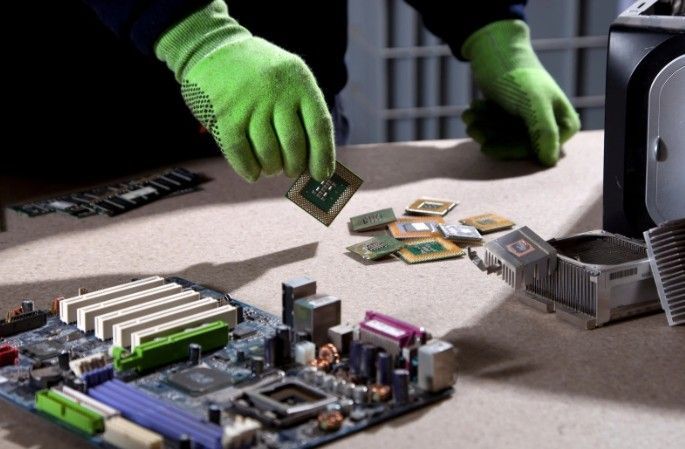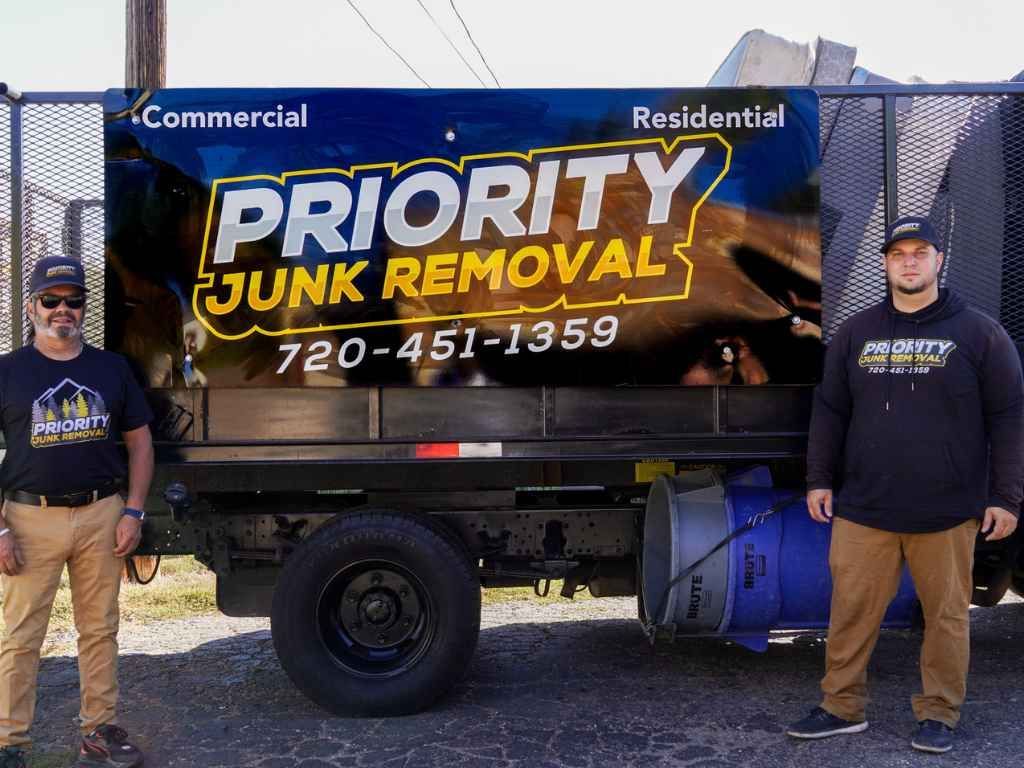How to Recycle Electronics Without Harming the Planet
As the world continues to advance technologically, the amount of electronic waste (e-waste) grows exponentially. Disposing of old gadgets improperly can lead to serious environmental issues, including soil contamination and harmful emissions. However, with proper recycling methods, these materials can be given a second life, preventing them from polluting the planet. To ensure that electronic items are disposed of in a way that benefits both the environment and society, you need to understand the importance of responsible recycling practices.
Recycling electronics responsibly is essential for both sustainability and the health of the planet. Improper disposal of electronic devices can result in dangerous chemicals leaching into the environment, such as lead, mercury, and cadmium, which can severely damage ecosystems. But when e-waste is recycled properly, these toxic substances are contained, and valuable materials like copper, aluminum, and gold can be recovered and reused.
Benefits of Recycling Electronics
Reducing Landfill Waste
Recycling electronics helps significantly decrease the amount of waste that ends up in landfills. Many electronic devices contain toxic chemicals that can leach into the soil and water, leading to environmental contamination. By recycling these devices, you help divert hazardous materials from landfills, ensuring that they do not cause long-term damage to the planet. Proper e-waste recycling enables materials to be reused, reducing the need for new products and lowering the carbon footprint associated with manufacturing.
Recovering Valuable Resources
Many electronic devices contain valuable materials such as gold, silver, and copper. When these devices are recycled, these materials can be extracted and used in the production of new products. This reduces the need for mining and allows for the creation of a more circular economy, where resources are continually reused. By recycling your electronics, you're playing an active role in conserving these precious resources for future generations while reducing the environmental impact of raw material extraction.
Preventing Hazardous Pollution
One of the most significant benefits of e-waste recycling is preventing hazardous chemicals from polluting the environment. Old electronics can contain substances such as lead, mercury, and cadmium, which pose serious health risks to humans and animals. These materials can seep into the ground and water, causing contamination. Proper recycling ensures that these toxic substances are safely handled and disposed of, helping to protect ecosystems, wildlife, and public health from dangerous exposure.
Supporting Responsible Disposal Practices
Recycling electronics not only benefits the environment but also encourages responsible disposal practices within communities. Many electronic waste recycling centers and services ensure that devices are broken down and recycled according to established environmental guidelines. By choosing to recycle your electronics responsibly, you're supporting organizations that follow strict procedures to minimize the impact on the environment. This can help promote a culture of sustainability and responsible consumption within your community.
Promoting Energy Savings
Recycling electronics conserves energy, as it requires less energy to process materials extracted from e-waste compared to producing new materials from raw sources. The production of new electronics and materials consumes significant amounts of energy, contributing to carbon emissions and climate change. By recycling old gadgets, you help reduce the energy required for production, contributing to the reduction of greenhouse gas emissions. This simple act can have a profound effect on reducing your carbon footprint and mitigating climate change.
Understanding E-Waste and Its Impact on the Environment
E-waste, or electronic waste, refers to discarded electronic devices such as computers, phones, and televisions. These devices often contain valuable materials like metals and plastics, as well as hazardous substances like mercury and lead. Improper disposal of e-waste can have devastating effects on the environment, releasing harmful chemicals into the soil and water. Fortunately, there are numerous ways to recycle e-waste responsibly to minimize its environmental impact.
The growing problem of e-waste is compounded by the rapid pace of technological advancement. As new gadgets are constantly introduced to the market, older models become obsolete and are often discarded. This leads to an increase in e-waste, with millions of tons generated each year. Many electronics contain components that can be toxic if not properly handled, and some devices may even contain precious metals.
How E-Waste Recycling Helps Preserve Natural Resources

Recycling e-waste is a powerful tool in the conservation of natural resources. When electronics are recycled, valuable metals like gold, silver, and copper are recovered and reused in the production of new devices. This reduces the need to mine raw materials, which can be harmful to the environment due to habitat destruction and pollution. Mining is a resource-intensive process that requires significant energy, water, and land, all of which take a toll on the planet.
Another key aspect of e-waste recycling is the recovery of plastics and other materials, which can be repurposed into new products. This reduces the demand for new plastic production, which is a major contributor to pollution and landfill waste. Through responsible e-waste recycling, valuable resources are conserved, and the need for environmentally damaging extraction processes is diminished.
The Environmental Benefits of Electronics Recycling Programs
Many communities and businesses are now implementing electronic waste recycling programs to help manage the growing problem of e-waste. These programs are designed to offer consumers a responsible way to dispose of their old electronics while ensuring that valuable materials are recovered, and hazardous substances are safely handled. The environmental benefits of these programs are far-reaching, from reducing the amount of waste sent to landfills to preventing the release of toxic chemicals into the environment.
Recycling programs also play a crucial role in raising awareness about the environmental impact of e-waste. Many people are unaware of the dangers of improper disposal and may be reluctant to recycle their electronics. However, when communities provide easy access to recycling facilities and promote responsible disposal methods, it encourages individuals to make more sustainable choices.
Why Proper E-Waste Disposal Is Crucial for Public Health
Improper disposal of e-waste can lead to serious public health issues. Electronics often contain toxic chemicals such as lead, mercury, and cadmium, which can be harmful to both humans and animals. When these materials are not disposed of properly, they can leach into the ground and water, contaminating drinking supplies and food sources. Long-term exposure to these substances can result in severe health problems, including neurological damage and cancer.
In addition to preventing chemical exposure, e-waste recycling also helps reduce the need for landfills, which can release harmful gases into the atmosphere as they decompose. By choosing to recycle your electronics instead of throwing them away, you contribute to a cleaner, healthier environment for both people and wildlife. Ensuring that e-waste is properly disposed of can significantly reduce the risks of pollution and associated health problems.
The Role of Technology in Facilitating Electronics Recycling
Advancements in technology have made it easier than ever to recycle electronics in a safe and efficient manner. Modern e-waste recycling centers utilize cutting-edge equipment to break down electronic devices and recover valuable materials such as metals, plastics, and glass. These centers are equipped to handle hazardous materials in accordance with environmental regulations, ensuring that toxic substances are safely removed and disposed of.
Furthermore, new technologies have made it possible to track and manage e-waste more effectively. Through online platforms and mobile apps, consumers can now find local recycling centers and schedule pickups for their old electronics. This makes recycling more accessible and convenient for everyone, reducing the likelihood of electronics being improperly disposed of.
What to Do With Old Electronics That Cannot Be Recycled
While most electronics can be recycled, some devices may not be suitable for traditional recycling methods due to their composition or condition. In these cases, it's essential to explore alternative disposal options to minimize their impact on the environment. Some electronics can be donated to charities or repurposed for parts. Other devices may need to be dismantled by professionals to ensure that hazardous materials are properly handled.
If an electronic device is beyond repair and cannot be recycled, proper disposal methods must be followed. Many communities offer special hazardous waste collection events where consumers can drop off items that don't fit into the usual recycling programs. By taking the time to properly dispose of these devices, you help keep harmful materials out of landfills and prevent unnecessary pollution. Always check with your local authorities to learn about the specific disposal guidelines in your area.
How to Choose a Responsible E-Waste Recycling Service
When selecting an e-waste recycling service, it's essential to choose a provider that follows environmental guidelines and ensures the responsible disposal of hazardous materials. Certified recycling centers should be your go-to option, as they are equipped to handle electronics in an environmentally friendly manner. Look for certifications such as R2 (Responsible Recycling) or e-Stewards, which ensure that the recycler adheres to high standards of environmental protection and worker safety.
Before choosing a recycling service, it's also important to check for transparency. A reputable service will be able to explain their recycling process, provide you with information about how they handle hazardous materials, and offer evidence of their certifications. By opting for certified e-waste recyclers, you're supporting businesses that prioritize environmental responsibility and the health of the planet.
Conclusion
When you properly recycle electronics, you play a crucial role in reducing harmful e-waste that can contaminate the environment. By recycling electronics, you help keep toxic chemicals like mercury, lead, and cadmium out of landfills, preserving both the earth and our health. Additionally, recycling allows valuable materials like gold, silver, and copper to be recovered and reused, promoting a circular economy that minimizes the need for new resource extraction.
At Priority Junk Removal, located in Littleton, Colorado, we prioritize sustainability by offering eco-friendly junk removal services, including responsible electronics recycling. We ensure that all electronics are disposed of in an environmentally safe manner. For more information or to schedule a pickup, contact us at 720-451-1359 or priorityjunkremoval@gmail.com.











